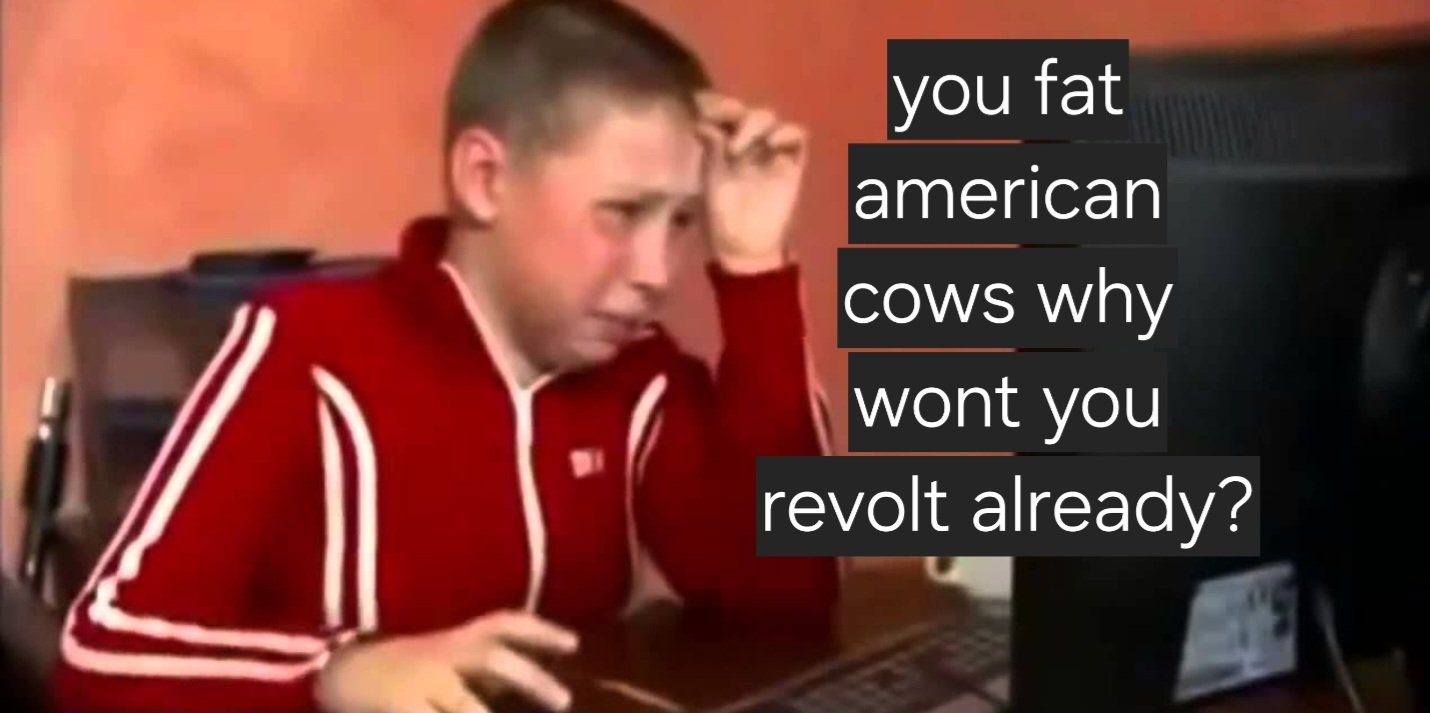this post was submitted on 21 Feb 2025
1417 points (97.9% liked)
Political Memes
6233 readers
5388 users here now
Welcome to politcal memes!
These are our rules:
Be civil
Jokes are okay, but don’t intentionally harass or disturb any member of our community. Sexism, racism and bigotry are not allowed. Good faith argumentation only. No posts discouraging people to vote or shaming people for voting.
No misinformation
Don’t post any intentional misinformation. When asked by mods, provide sources for any claims you make.
Posts should be memes
Random pictures do not qualify as memes. Relevance to politics is required.
No bots, spam or self-promotion
Follow instance rules, ask for your bot to be allowed on this community.
founded 2 years ago
MODERATORS
you are viewing a single comment's thread
view the rest of the comments
view the rest of the comments


That's fair. In that case allow me to weaken/correct my position: While starvation isn't the revolutionary impetus, it's not nothing and does contribute to revolutions.
Source. They still weren't "having the time of their lives," to correct my previous assertion, but they weren't going hungry either.
Conservative counterrevolutionaries don't vote for socialist revolutionary parties, which the Trudoviks were. They split with the SRs over the question of whether they should participate in the Duma so they definitely weren't merely land-reformers. Also where did you get that they had only marginal support from the peasantry after 1907?
I mean yeah why not? If we assume there's a person X who's financially in a bad spot, then the reason person X would have issue with the idea of increased car payments is that the money for the car would have to come from somewhere else. Fundamentally there's not much difference between a working person getting a pay cut (or facing rising food prices) and a farmer having a bad harvest.
Were the peasantry in an objectively worse food situation than the urban proletariat? If you have a something supporting that claim please link it.
Peasants didn't really revolt in the same way urban workers did, and urban workers were absolutely more revolutionary (though in some places the gap shrank with time), but peasant uprisings did happen during in 1848-1849.
Source.
Also on the 1848 revolutions as a whole,
There's a reason I said "in part". I know that the hungry forties were only one contributing cause of the revolutions of 1848, and I don't think you'll find a reputable historian that considers them irrelevant.